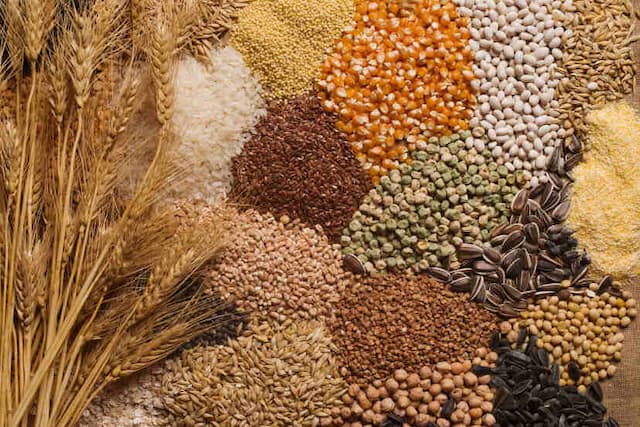The aroma and strong forms of coffee available in India are in worldwide demand. These strong aromatic coffee beans belong to the green plantations of Karnataka, Kerala, and Tamil Nadu. The coffee from Indian exporters has a rich flavor and is making its way into becoming a specialty coffee over the years. This shows that India is surely going to soar high in coffee exports in 2025. Exporters, investors, and trade players in logistics are now closely monitoring the upward trend changes in the market, global demand, and friendly trade policies, thereby making Indian coffee a good product.
This blog talks about the factors that are influencing the coffee export scenario in India and how the exporters can gear up to utilise their full potential.
The Current Landscape of India’s Coffee Exports
In order to foresee future growth, we need to trace how India’s coffee exports stand today.
Export Volumes and Global Position
India ranks among the top 10 coffee exporters in the world. In 2024, India exports about 400,000 metric tonnes of coffee yearly, a combination consisting of Robusta, Arabica, and instant coffee items. The exports in the country are strengthened by the fact that approximately 70 percent of domestic production is exported outside the country.
In Karnataka alone, more than 50 per cent of the Indian coffee is produced, with Robusta as the predominant coffee variety because of its climatic stability and market need in the new markets.
Top Importing Countries
Indian coffee exports are mainly directed to Italy, Germany, Belgium, Russia, and Turkey. These nations appreciate washed Arabica and cherry Robusta in India, particularly in their blending and instant coffee productions. As the demand for specialty and premium coffee rises, the Middle Eastern markets are also becoming more significant.
Emerging Trends Shaping India’s Coffee Export Success
The coffee industry in India is changing along with the global consumer trends and digital progress.
Surge in Specialty and Organic Coffee
The consumer is more interested in the specialty coffee that can be traced to a particular farm and cultivated in an environmentally friendly manner. Indian exporters making investments in organic certifications, sustainable operations, and quality checks are getting improved prices and long-term contracts.
The reason behind this emphasis is not simply compliance, but rather seeking a premium niche across Europe, North America, and Japan.
Emphasis on Value-Added Products
Unlike the export of raw coffee beans, Indian exporters currently aim to increase their market share of value-added products. Soon, there will be innovations in roasted coffee, ground coffee, and even instant mix. This increases their profitability, and they can develop brand equity for their products in foreign markets.
It will be wise to invest in roasting, packaging, and having their own label; therefore, exporters who want to stand out should consider this.
Digital Marketplaces and Direct Trade
Through online trade portals such as Amazon, TradeIndia, and international B2B coffee e-markets, Indian exporters are getting direct access to international consumers. It is a digitalisation of trade that lowers the reliance on the old brokers and provides more favourable prices and immediate access to the world’s patterns of demand.
Government Support and Policy Push
India is also experiencing a very strong public policy as a facilitator to enhance its exports of coffee.
Export Incentives and Schemes
The exporters of coffee benefit from schemes such as –
- Remission of Duties and Taxes on Exported Goods (RoDTEP)
- Agricultural export, Transport and marketing assistance (TMA)
- The availability of low-interest export credit to developing countries, such as the EXIM Bank
Such schemes lessen the load on expenditure, and Indian coffee becomes available at an affordable price.
India’s Coffee Board Initiatives
In India, most of the research, quality testing, and export marketing is done through the Coffee Board. Their Coffee Exporter Registration and monitoring system also makes them traceable and assists the exporters in complying with international standards of quality.
Major Challenges Exporters Must Overcome
India’s coffee exports have a strong future, but exporters still face several operational and trade challenges.
Climate-Linked Yield Variability
Cultivating coffee is vulnerable to changes in temperature and rain. Inconsistent monsoons and an upsurge in pests because of the changing climate are an extreme danger to the outputs in the south of India.
Logistics and Freight Costs
However, high container prices and port congestion point to delayed deliveries, particularly in the high season, even though the ports are well-linked. In a bid to deliver on their promises, exporters need to partner with freighters with experience.
Growth Potential and Future Opportunities
India’s coffee exports also have a lot of growth potential even in 2025, despite these challenges.
Tapping Untapped Markets
Other areas such as Southeast Asia, Eastern Europe, and Sub-Saharan Africa are emerging economies where the consumption of coffee is on the increase. Indian exporters who customise their prices, market, and packaging plan for these locations shall be able to absorb the emerging demand points.
Exporting Indian Coffee Brands
The fact that home-grown brands of Indian coffee, Blue Tokai, Araku coffee, or The Flying Squirrel are popular means that the world cares about origin-based branding. Niche global followings can be established through storytelling, packaging, and direct-to-consumer models by exporters who invest in those spaces and capabilities.
A Promising Year Ahead for the Indian Coffee Trade
To close the gap and meet the demand in the global market, India coffee exports are moving with hope into the next year because of quality enhancements, robust market demand, and modernisation in digitalisation. Although problems, such as climate risk and logistics, will still be there, there are wider prospects of value addition, branding, and accessibility to new markets than challenges. Quality, compliance, and innovation-loving exporters stand a good chance of succeeding in this changing trade environment.
At Credlix, we help coffee exporters by supporting them in their growth through the provision of working capital solutions, export invoice financing, and protection against risk. Our digital-first platform is all you need to connect with global markets, whether you are shipping to Italy or Japan, by covering your payments and ensuring your transactions go smoothly.




